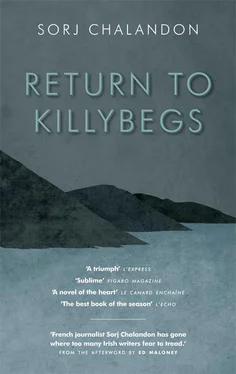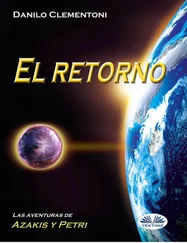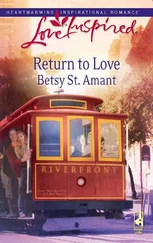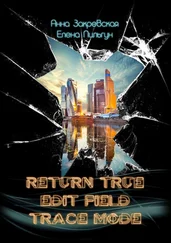I went back up the street, passed the village limit. I went back to the damp and pitch-black house, Tom’s sliotar gripped in my hand, inside my pocket. I wasn’t drunk, I was dizzy, relieved, uneasy. I had just started my journal.
With Great Britain at war, we knew that living in north Belfast would become difficult. It began in August 1941 with a few rocks being hurled at our door. ‘Irish bastards’ was scrawled in black graffiti across Lawrence’s workshop. One night in September, we doused a petrol bomb thrown through the living-room window. Farther up along Sandy Street, a Catholic family decided to leave for the Republic. And then two others followed them from Mills Terrace. Every night Protestants used to creep into our neighbourhood and smear insults across the fronts of our houses. ‘Papist traitors out!’ ‘Catholic = IRA’. Lawrence kept a club next to his bed. Seánie would slip his hurley under the mattress. But we weren’t prepared for battle.
The Costello family retreated to the Beechmount neighbourhood just after Christmas. They did it in three trips, taking their time. I kissed Sheila again. Their house burned the same night.
The Loyalists were cleaning their streets. They were Protestant, British and at war. We were Catholic, Irish and neutral. Cowards or spies. They used to say that in the Republic of Ireland the towns left their lights on all night to show the Luftwaffe the way to Belfast. They used to say that in Northern Ireland we were the fifth column, the craftsmen of the German invasion. We were accused of preparing secret landing fields for their planes and paratroopers. We were foreigners, enemies. All they wanted was for us to cross back over the border or stay in our ghettos.
But Lawrence refused to leave. In 1923, his parents had held out as they were gradually surrounded by deserted houses with gaping windows. One evening, Mother’s brother spoke more than he intended to. He said that every part of Ireland was our home, from Dublin to Belfast, from Killybegs to 19 Sandy Street. He said that they were the foreigners — the Protestants, the Unionists — those descendents of colonizers who had usurped our houses and lands thanks to Cromwell’s sword. He said that we had the same rights as them, and were due the same consideration. He said it was a question of dignity. And I listened to him. And I heard my father. I loved my father through my uncle’s anger. Lawrence Finnegan, he was Padraig Meehan minus the alcohol and the blows.

My uncle had stopped drinking ten years previously. His car had overturned one evening on his way back from Derry, hit a pole, then a tree and rolled into the ditch. He and Hilda were returning from the doctor’s surgery. The results of his wife’s tests were not good. They would not be having children, ever. Nothing but him and her, every morning, every evening, all the days of their lives. And that’s the way it would be until one of them died and the other followed. On the way home, they drank to forget. They crossed over the border in tears, shouting at the Brits through the open window. Long live the Republic! And there it was again at last! And he lost control on Irish soil. The car turned over. Lawrence lived. Hilda died. Since then, my uncle had replaced drunkenness with silence.

We were in the middle of saying our evening prayers when the Protestants entered Sandy Street on Sunday, 4 January 1942. They smashed through our door with an axe and threw lit torches into the hallway. Lawrence tipped the couch over to protect us. The girls came tearing down from the first floor, screaming. Mother was holding baby Sara by a leg, her head hanging down. Seánie had his hurley in his hand and my uncle roared at him not to move, not to try a thing, to hide with us behind the velvet cushions.
— You clear out of here tomorrow! shouted a man’s voice.
I didn’t see him. I saw nobody. I had my head between my knees and my eyes closed. My sisters, brothers and mother were all around me on the ground, our arms and legs tangled together. They came in. They broke the windows, tearing off the lattice of sticky paper that protected the panes from the German bombs. They broke the soup tureen from Galway. They tore up the photo of Pope Pius XII. They destroyed everything, trampled everything. They went upstairs, avoiding us, running past on either side of our shelter. There were eleven of us, all on top of one another, taking refuge under a sofa upturned against a wall. That is to say naked, exposed and defenceless. They could have killed us, but they didn’t. They stepped over us, ignored us. They didn’t speak. They vandalized everything familiar without a word. They only existed in the noise of their steps and their breathing. They even tore the head off Dodie Dum, baby Sara’s soother. They upset everything, and then they left.
— Tomorrow! the voice shouted again.
Seánie was the first to go outside, stick in hand and tears in his eyes. He was the oldest of the Meehans, the head of the family, and he had failed. He was the only one left to replace our father and he hadn’t done it. He was in the deserted street shouting at the bastards, his wooden stick useless. Lawrence was throwing buckets of water on the flames licking the living-room curtains. The fire was roaring in the girls’ room. We no longer had a choice. It was time. We had held on up until that point, a few months, a few days more. Most of our neighbours had given in. We were the last, or near enough. I can still see my uncle bringing Seánie back into our hostile house, a hand on his neck, telling him that what was needed now was to save what could be saved. And also that he, Seánie, had protected us. That protecting was better than killing. That we all owed him our lives. I remember my brother’s face. He looked at my uncle, trying to grasp what he had just been told. And then he rushed to the first floor to snatch some clothes from the inferno.
Later, while the roof burned, Seánie came back with the last bags. Áine, wee Kevin and Brian slowly circled him. My brother crouched down. He hugged them to himself, all wrapped up together, an armful of frightened children being told, ‘I love you.’

When Lawrence’s truck arrived in Dholpur Lane, the residents came out to meet us.
— The families from Sandy Street! a kid yelled.
It was four in the morning, 6 January. The front doors along the street opened almost simultaneously, as though the neighbourhood had been waiting for us. The women had slipped their coats on over their nightclothes. Men lowered the tailgate to help out a family in tatters. We’d been able to save two mattresses, four chairs, the kitchen table and some clothes.
I was carrying a mattress on my head. It was bending down in front and behind me, threatening to topple at every step and blocking my vision. Brian, Niall and Seánie were carrying the table. Róisín, Mary and Áine were laden with bags of clothes. Wee Kevin was dragging a chair along the street. Mother’s load was baby Sara, and also our plaster Virgin, which she held pressed against her child. A woman wrapped them up in a blanket.
Around twenty young lads rushed towards us with wheelbarrows. They piled up the bags, the table and the chairs. A young man was giving them short orders. They called him Tom. An officer deploying soldiers sprang to mind.
— You want some help?
I looked at Tom without responding. He was a tall, dark-haired lad, not much older than I was. He lifted the mattress off my head and we carried it together as far as number seventeen, a black and red door that had been opened for us.
Читать дальше














